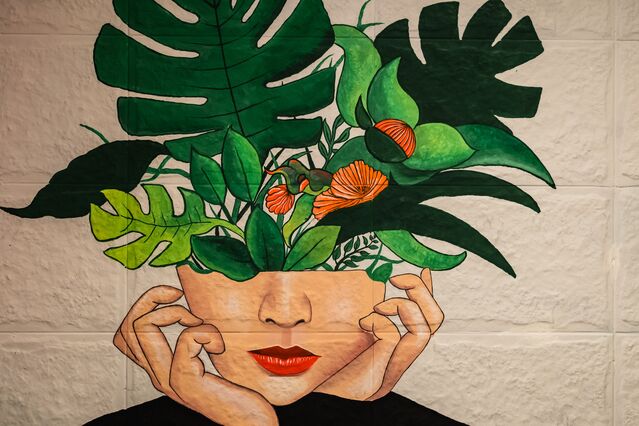Authenticity
Wired for Growth
How your body signals the optimal moment to foster authenticity and resilience.
Posted October 16, 2022 Reviewed by Jessica Schrader
Key points
- Uncomfortable feelings are our personal invitation to a party for our own emotional growth.
- Experiencing vulnerable emotions is essential for deepening capacities for authenticity, resilience, and connection.
- When emotion rises, we feel unrest—a bracing and agitation of our nervous systems that is indistinguishable from fear.

Like all living things, you are meant to grow. Did you know that, just like DNA directs what we are physically meant to become, we also harbour a psychological-emotional DNA? A coding for the deepest and most true manifestation of who we are meant to be as human beings. We may feel it, in quiet moments, as a tug, inclination, or a pull towards something. A hunger for a kind of truth or integrity or wholeness. If we neglect this calling, we can feel a hollow ache inside. Overlaid with twitchy feelings of agitation.
“There’s a party and you’re invited”
And thank goodness for that. These uncomfortable feelings are our personal invitation to a party for our own emotional growth. A party within your body if you are willing to accept the invite. Your growth is calling you in the rich, messy mixture of sensations of what it feels like to be you. In the joy, pain, hope, anger, grief, and fullness of you.
We all need this invitation to come home because experiencing vulnerable emotion is essential for deepening capacities for authenticity, resilience, and connection. But experiencing vulnerable emotions is, well, vulnerable. Feelings are what they are, and they don’t care if they match your ideas about what they should be, or how big they should be, or how long they should last.
When emotion rises, we feel unrest—a bracing and agitation of our nervous systems that is indistinguishable from fear. We unconsciously move away from unrest because it feels like danger. We escape the moment and move into our heads. We speed up and take off like supersonic rockets into the stratosphere of ideas and busy activity. Far away from the grounded earth of our physical bodies.

“We get speedy, heady, and disconnected”
So whether we are actively paying attention or not, we receive our invitations via some very uncomfortable signals in the body. If we don’t know how to acknowledge this, unrest will eject us from our inner selves. We get speedy, heady, and disconnected. We have the urge to escape the inner discomfort by getting busy with stories in our heads and activities in our lives.
“Approach rather than avoid the discomfort”
But everything we do to not feel our inner lives creates problems. We worry to avoid feeling the pain of uncertainty and become anxious or controlling, we criticize ourselves as if we could do things perfectly and feel unworthy, we eat to avoid feeling angry and can’t fit into our jeans, we drink to shut down our sadness and it’s five o’clock somewhere every day, we take on more than we can handle because we don’t want to feel the pain of our limits and end up exhausted, we work long hours to avoid facing some pain in our home lives and end up isolated and alone, we compulsively shop to fill the emptiness inside and end up broke or bankrupt, we shut down our feelings altogether and become depressed or develop some chronic illness … the list could go on and on.
Experience avoidance is epidemic. We struggle to slow down and feel because unrest spikes when we’re moved by longing and confronted with limits. Unrest is a healthy signal calling us to face vulnerability and grow. Unfortunately, our brains misread unrest as danger and, just when we most need to be present, we’re ejected from our inner lives.
But, there’s a solution. By practicing the very opposite of how we’re wired and approaching rather than avoiding the discomfort, awareness of our inner experience actually soothes the body. As though by the very act of being seen and mattering, unrest’s power is used for good not evil. Unrest brings you home to the truth inside you. We come home to our bodies in the optimal moment to foster growth. In the vulnerable truth of our human limitation to control things that matter to us, we can do the one thing that is always ours to do: we can matter to ourselves.

Matter to Yourself
When we matter to ourselves, we pay attention in our physical matter. We notice what it feels like to be anxious, tense, and bracing against the inevitable pain of life. We let go of the stories, judgment, and defenses. We take a deep breath, let that breath go, drop in, and get close to ourselves right here and now.
As easy as this sounds, it takes courage and commitment. We need to remember that vulnerability is not danger. Rather, it’s the mere truth of our humanity and the launch pad for our growth.
However, as we approach this experience of ourselves, we have to sloooooow down and decide that it’s safe to be open to ourselves. For ourselves.
7 Steps to More You
- Step 1: Take a breath right now. Inhale and exhale with full attention to what that feels like.
- Step 2: Open up to some sense of longing inside—perhaps you long for more support, or time, or ease, or for a good night’s sleep, or for someone you love to be well.
- Step 3: Acknowledge that you do not have 100% control over whether or how that thing happens.
- Step 4: Slow your mind down and focus on your body.
- Step 5: Look for one place inside that feels tight or tense or cramped and say hello with warm interest. Let go of your judgment and feel the uncomfortable sensations with precision.
- Step 6: Let go of your need for anything to be different right now, and notice as some emotion rises—perhaps anger or sadness—to help you accept your human limits.
- Step 7: Love your vulnerable self right here and now. Vulnerability is uncomfortable but it is not dangerous. Stay with yourself and you will grow into more of who you are most deeply meant to become.
“Trust Your Wiring”
It is not our ideas about who we each are that will pull us forward into ourselves. It is the slow, physical experience that grows us into who we are most deeply meant to be. We are wired to grow via experience. Trust your wiring. Pay compassionate inner attention to discomfort in your body. You are the medicine for the distress—stay present without judgment and soothe it. Access the wisdom of your emotions. You'll be surprised at how and who you grow.
References
Brown, Brene (2015). Daring Greatly: How the Courage to be Vulnerable Transforms the Way We Live, Love, Parent and Lead. New York: Avery.
Parker, Sandra (2022). Embracing Unrest: Harness Vulnerability to Tame Anxiety and Spark Growth. Vancouver, BC: Page Two.




